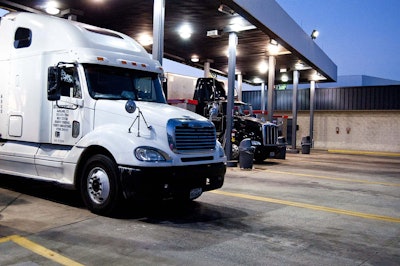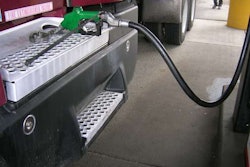
Tennessee
Tennessee Governor Bill Haslam’s fuel-tax-increase plan to fund roads in the state, previously reported in the story at this link, saw some action earlier this week in the state’s Senate. The governor’s proposed 12-cent/gal. diesel hike cleared a Senate committee as a 10-cent/gal. hike, phased in over a few years and maxing out at 29 cents/gal in 2019-’20. The hike was approved earlier this week by the State Senate’s Transportation and Safety committee.
As previously reported, the governor had proposed phasing the tax in to 31 cents over a similar period as part of what he was calling the IMPROVE Act, the culmination of a long-ongoing statewide debate over how to fund state and local needs transportation infrastructure needs.
An alternative plan being considered in the State House reportedly did not include fuel-tax hikes at all.
Haslam’s plan for a smaller, 7-cents/gal. boost in gasoline taxes (to almost 29 cents), was likewise reduced in the Senate version of the plan. As some other states have proposed in recent years, both diesel and gas taxes under the governor’s plan would have been indexed to fluctuate with the Consumer Price Index, with a cap preventing outsize increases, but according to this report in the Tennesseean newspaper, that aspect was cut from the Senate committee’s version of the proposal.
Utah
Utah’s congress has passed bill SB 276, which would change its fuels tax from a fixed amount to one that fluctuates annually. Passed by both houses in the Utah legislature, if the bill is signed by Utah Governor Gary Herbert it would index the fuel tax to fluctuations in the cost of fuel, adjusted every year. The tax would stand at 16.5 percent of the prior year’s average rack price for a gallon of fuel. The measure specified a $1.78/gal. average price minimum and a $2.43/gal. maximum. The annual calculations would thus put the tax between 29 (the current level) and 40 cents per gallon.
Beginning in 2019, the bill specifies the averaging of fuel cost for tax purposes to be conducted for the preceding three-year period, rather than a single year.









